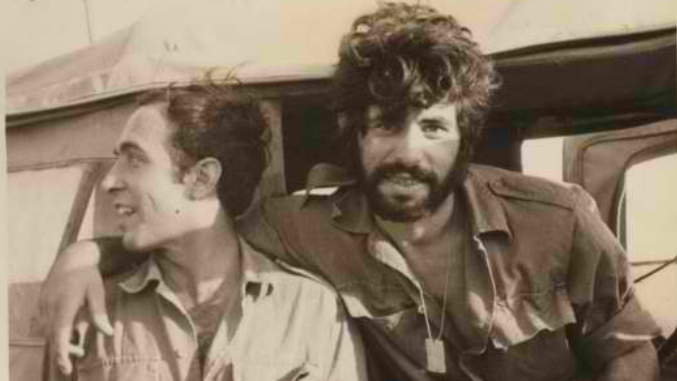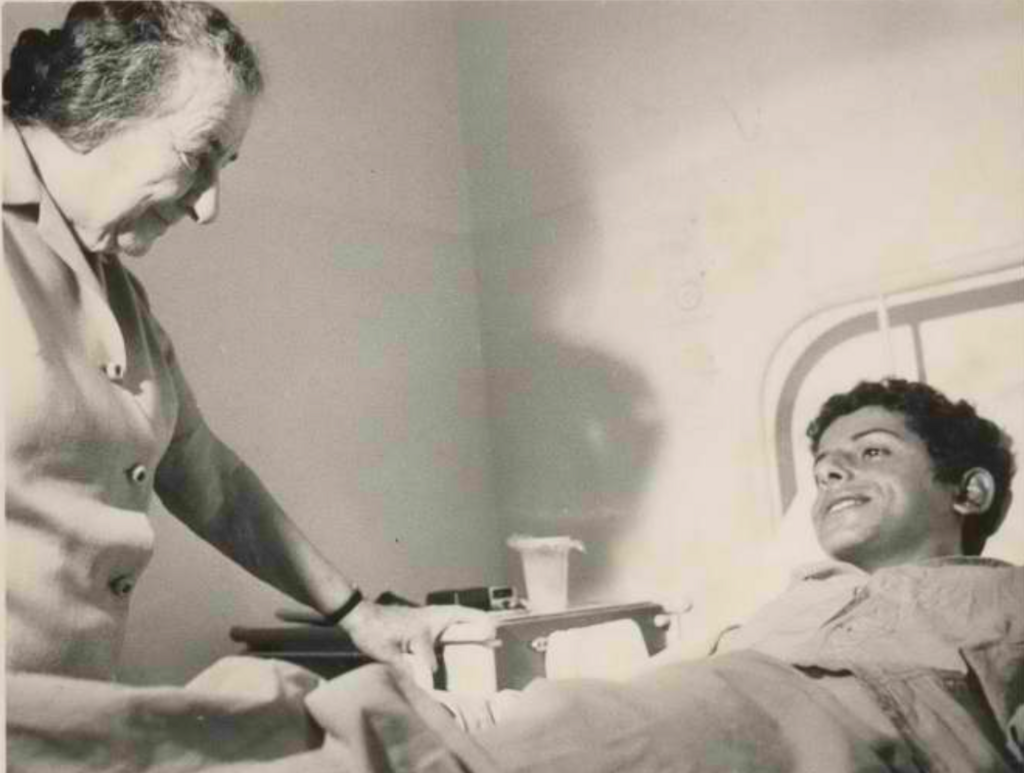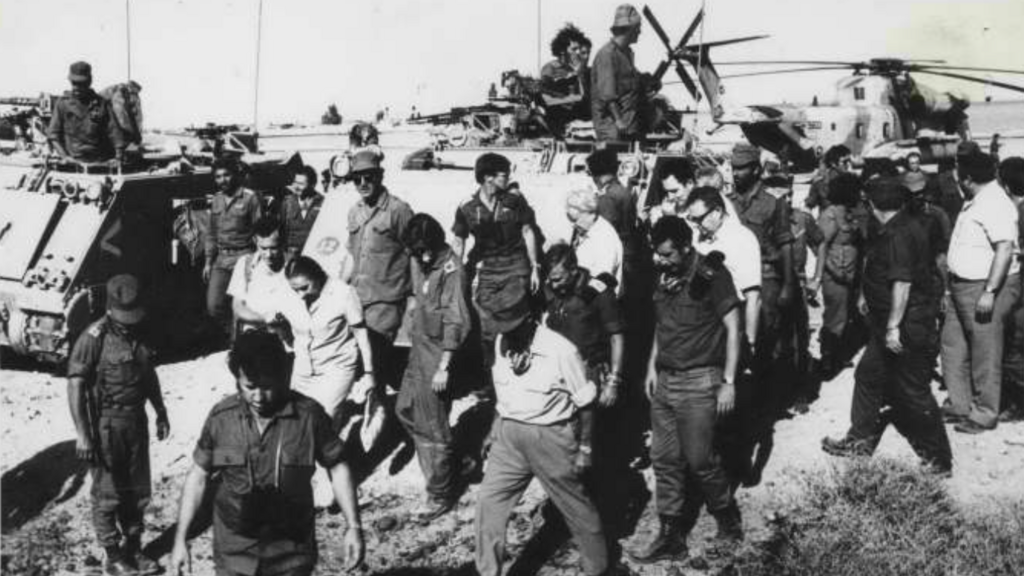The Israeli archival entity places an extensive compilation in the public domain, shedding light on the operations and intelligence failures prior to the conflict.
With the fiftieth anniversary of the Yom Kippur War approaching, the State Archives of Israel released a vast amount of classified materials from the 1973 conflict.
Declassification of Files and Intelligence Failures
 A half-track vehicle with an inscription praising then-Prime Minister Golda Meir in the north, before or during the Yom Kippur War, October 1973. (State Archives)
A half-track vehicle with an inscription praising then-Prime Minister Golda Meir in the north, before or during the Yom Kippur War, October 1973. (State Archives)The Israeli archival entity places an extensive compilation in the public domain, shedding light on the operations and intelligence failures prior to the conflict. Although documents have been released previously, this is the most comprehensive release made.
A specific digital platform has been enabled to host some 3,500 files. This database consists of approximately 1,400 authentic documents, 1,000 images, 750 sound recordings and essential videos of strategic deliberations.

An Israeli tank on its way to the Syrian border during the Yom Kippur War, October 1973. (State Archives)
The process of preparing and loading these assets requires 30 months. Ruti Abramovitch, the state archivist, stresses that this action provides a panoramic perspective of a conflict that profoundly influenced Israeli geopolitics.
High Command Deliberations Before Conflict

Significant documents reveal crucial conversations between Prime Minister Golda Meir and defense sector leaders prior to the coordinated assault on Syria and Egypt in October 1973.
Despite tactical evidence of the imminent attack, Israel underestimated the possibility based on the previous outcome of the Six-Day War. Cairo’s position was believed to be conditioned by its ability to neutralize Israeli military aviation.
 An IDF soldier waves an Israeli flag as he heads towards Damascus during the Yom Kippur War, October 1973. (State Archives)
An IDF soldier waves an Israeli flag as he heads towards Damascus during the Yom Kippur War, October 1973. (State Archives)Eli Zeira, leader of Military Intelligence, told Meir that, although adversaries could technically attack, there was no conclusive evidence of a large-scale offensive.
Strategic Decisions and Intelligence Assessments
Subsequently, Zeira, together with David Elazar, top representative of the IDF General Staff, considered the possibility of a limited maneuver by the adversaries.

In the absence of definitive evidence of a full offensive, deliberations remained cautious. However, a crucial report by Mossad leader Zvi Zamir changed the perception, suggesting that the start of hostilities was imminent.
The Preemptive Strike Dilemma
Faced with this new information, the option of a preventive attack similar to that of 1967 was debated. However, the diplomatic repercussions of such an action were considered.
 An IDF Army soldier marries his girlfriend at his base before the Yom Kippur War in October 1973. (State Archives)
An IDF Army soldier marries his girlfriend at his base before the Yom Kippur War in October 1973. (State Archives)Defense Minister Moshe Dayan warned of the diplomatic limitations of an early assault. Golda Meir agreed, highlighting the geopolitical differences with respect to the situation in 1967 and international perception.
Internal Debate on Intelligence Disclosure
 IDF Chief of Staff David Elazar watches the Suez Canal during the Yom Kippur War, October 1973. (State Archives)
IDF Chief of Staff David Elazar watches the Suez Canal during the Yom Kippur War, October 1973. (State Archives)Israel was evaluating the possibility of disclosing its knowledge of the imminent enemy assault in advance in order to deter its execution.
“Zvika [Zamir]’s source hints that early disclosure could prevent conflict. Zvika advocates this approach,” said Minister Yisrael Galili, keeping some details of his comments reserved.

Yigal Alon, another minister, proposed sharing this data with the media prior to a government conclave. Golda Meir, however, favored the idea of only informing diplomatic representatives. Finally, she chose to contact the American ambassador Kenneth Keating, after the intervention of Moshe Dayan who noted: “It is imperative to proceed with caution to avoid unnecessary alarms.”
Diplomatic Communications and Strategic Decisions
 Prime Minister Golda Meir, left, visits an IDF soldier wounded during the Yom Kippur War, October 1973. (State Archives)
Prime Minister Golda Meir, left, visits an IDF soldier wounded during the Yom Kippur War, October 1973. (State Archives)In a meeting, Meir asked Keating to convey the following message to Egypt: “We are confident in our ability to win, but we want to ensure that we do not plan to attack. However, we are ready to defend ourselves.”
When questioned about the possibility of a preemptive attack, Meir denied such action, pointing out that such a maneuver would have simplified the situation.
 Israeli troops operate an IDF cannon on the Syrian front during the Yom Kippur War, October 1973. (State Archives)
Israeli troops operate an IDF cannon on the Syrian front during the Yom Kippur War, October 1973. (State Archives)After the unexpected start of the enemy attack, Dayan admitted errors in his assessments to Meir and Alon. “Our analysis was based on the previous war and was not accurate. “We and others erred in foreseeing the actions during the attempted transfer of the Suez Canal,” he stated.
US Support and Documentary Records
A few days after it was established that Israel had not caused the conflict, the United States offered military support. “Nixon has made the decision on the Phantoms [fighter planes]. He now only remains to implement it. Kissinger is arranging his transfer,” the records detail.

These reports come from the personal diary of Eli Mizrahi, who served as director of the prime minister’s office during that period. Some sections of this newspaper had already been previously published.
According to the State Archives, the documentation “offers an unprecedented look at the decisive process under uncertain conditions, combats on various fronts, diplomatic interventions mediated by the US after the conflict and rapprochements with Egypt and Syria, culminating in the signing of agreements of demilitarization”.
Consequences of the Conflict
The 1973 war culminated on October 24 with a definitive ceasefire, allowing Israel to retain control over the Sinai Peninsula and the Golan Heights, territories acquired during the Six-Day War.
The toll was significant: more than 2,500 Israeli soldiers lost their lives, and thousands more were injured, along with thousands of casualties among Egyptian, Syrian and Iraqi forces.



